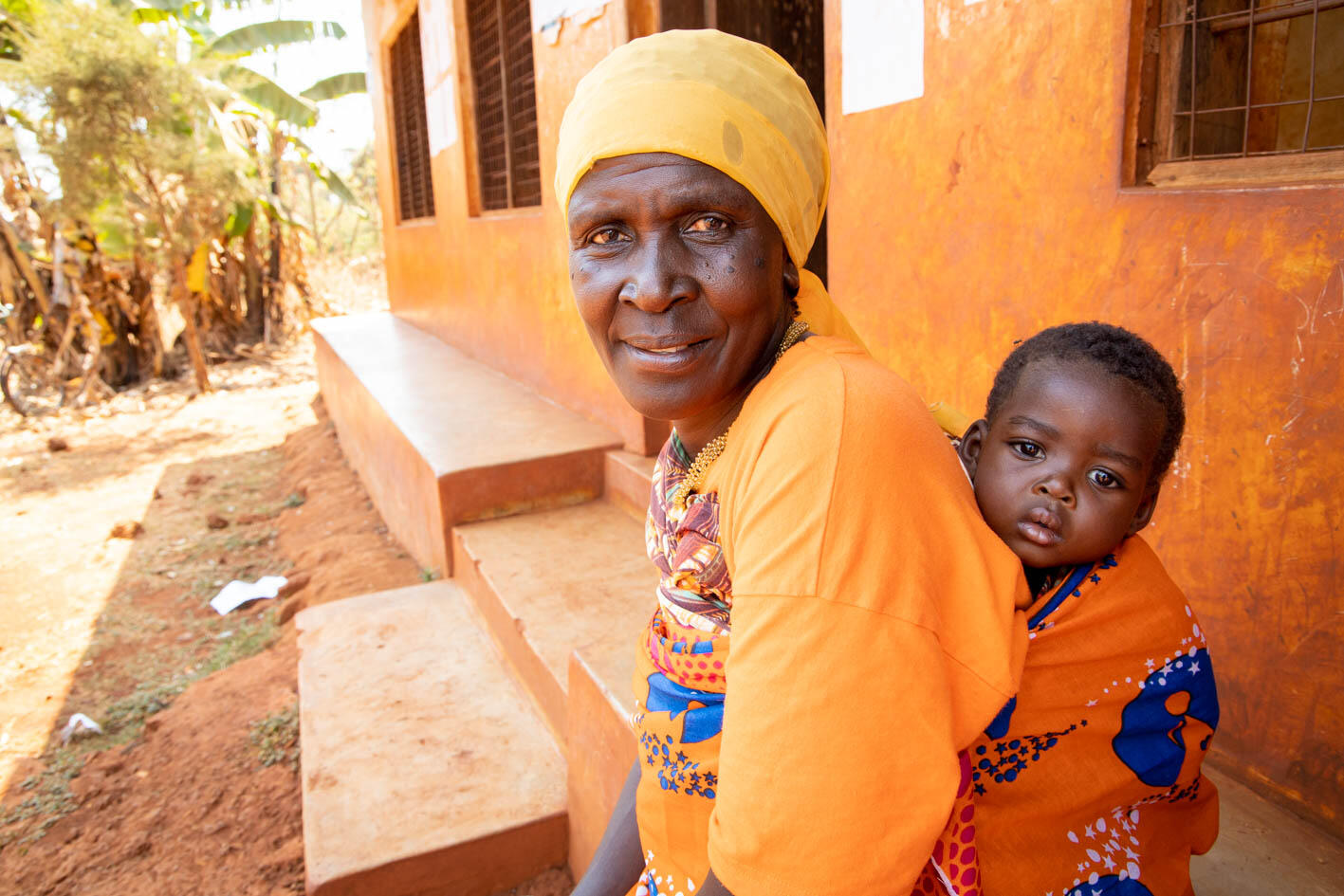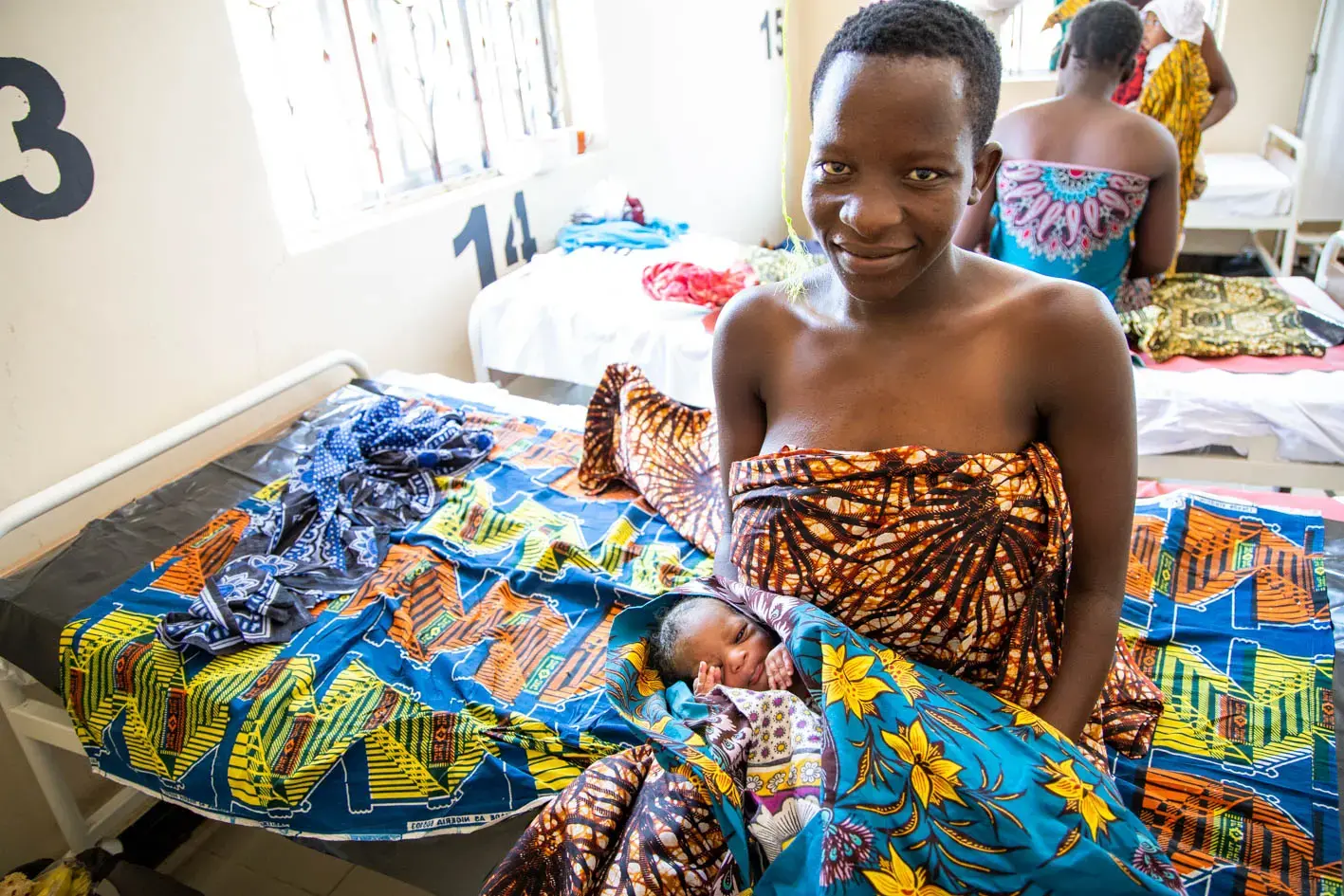On 5 May, the International Day of the Midwife honours the life-saving work of midwives everywhere – but this year the celebrations arrive on a more sombre note.
Today, UNFPA Tanzania applauds and thanks all midwives in mainland Tanzania and Zanzibar for their courage and resilience in continuing to provide sexual and reproductive health (SRH) services – midwives like Flora who was deployed to Nyarugusu refugee camp in Kigoma Region two years ago and who is committed to defending women’s rights in the times of COVID-19.
Flora always wanted to be a midwife and loves the variety of her job from providing general health care and counselling on voluntary family planning to supporting women before, during and after they have given birth. But work in the resource poor setting of the camp is challenging. The health facility is constantly busy, there is a shortage of skilled staff, and sometimes Flora has to deal with behaviours from family that are harmful to women and girls health.
Last year, Flora was supported by UNFPA to attend training in basic emergency obstetric and newborn care (BEmONC). She is now able to recognize the danger signs of pregnancy and is confident to make the timely and appropriate decisions which can often mean the difference between life and death. It is this skilled care and strengthened systems in the camps that are saving lives – as evidenced by a dramatic drop in maternal and newborn death – skills that will be invaluable during the COVID-19 outbreak. Because as Flora so succinctly says, women will still keep getting pregnant and giving birth, pandemic or no pandemic.
In spite of Flora’s resilience and commitment she is understandably uneasy as the number of confirmed cases of COVID-19 continue to rise in Tanzania. Providing midwifery services during a global pandemic wasn’t she says something she covered in her training curriculum. She has already witnessed some outreach services halting in the camps due to physical distancing measures and says a number of the midwifery workforce have been reassigned to respond to the outbreak. She is worried that there will not be the capacity to deliver quality and comprehensive SRH services and also concerned for her personal safety.
Women and girls and youth in Kigoma Region are some of the furthest behind in Tanzania and UNFPA’s response – as part of national COVID-19 coordinated efforts – is to ensure that essential, safe and comprehensive SRH services continue in the camps and in the local community during the outbreak including services and supplies for maternal and newborn health; voluntary family planning; and gender-based violence (GBV) prevention and response.
UNFPA has prepositioned Emergency Reproductive Health Kits at the warehouse in Kigoma and is supporting its partners to distribute them in the camps. The kits are specifically designed to maintain the provision of SRH services during a crisis and include modern contraceptives, life-saving maternal health medicines and supplies and post-exposure prophylaxis (PEP)/post rape kits. Estimates for additional ERH kits to meet increased demand have been completed and the mobilization of resources for their procurement is ongoing.
We are also continuing to distribute Dignity Kits – both sanitary and hygiene – to women and girls of reproductive age in the camps, directly and through our partners. These kits contain menstrual pads, basins, soaps, and kitenge (sarong), among other supplies, all items that enable women and girls to maintain their basic hygiene and dignity in a crisis.
And to ensure that midwives like Flora can do her job safely and to the high levels she aspires to – we will provide frontline staff in Kigoma with personal protective equipment (PPE) kits and COVID-19 infection prevention and control training, recruiting additional nurse-midwives and clinical officers for surge deployment.
UNFPA Tanzania recognizes that these are challenging and unprecedented times. Today, and every day, we stand with Tanzania’s midwives and are committed to protecting you, so that you in turn can continue to protect the sexual and reproductive health and rights of women, girls and youth.





